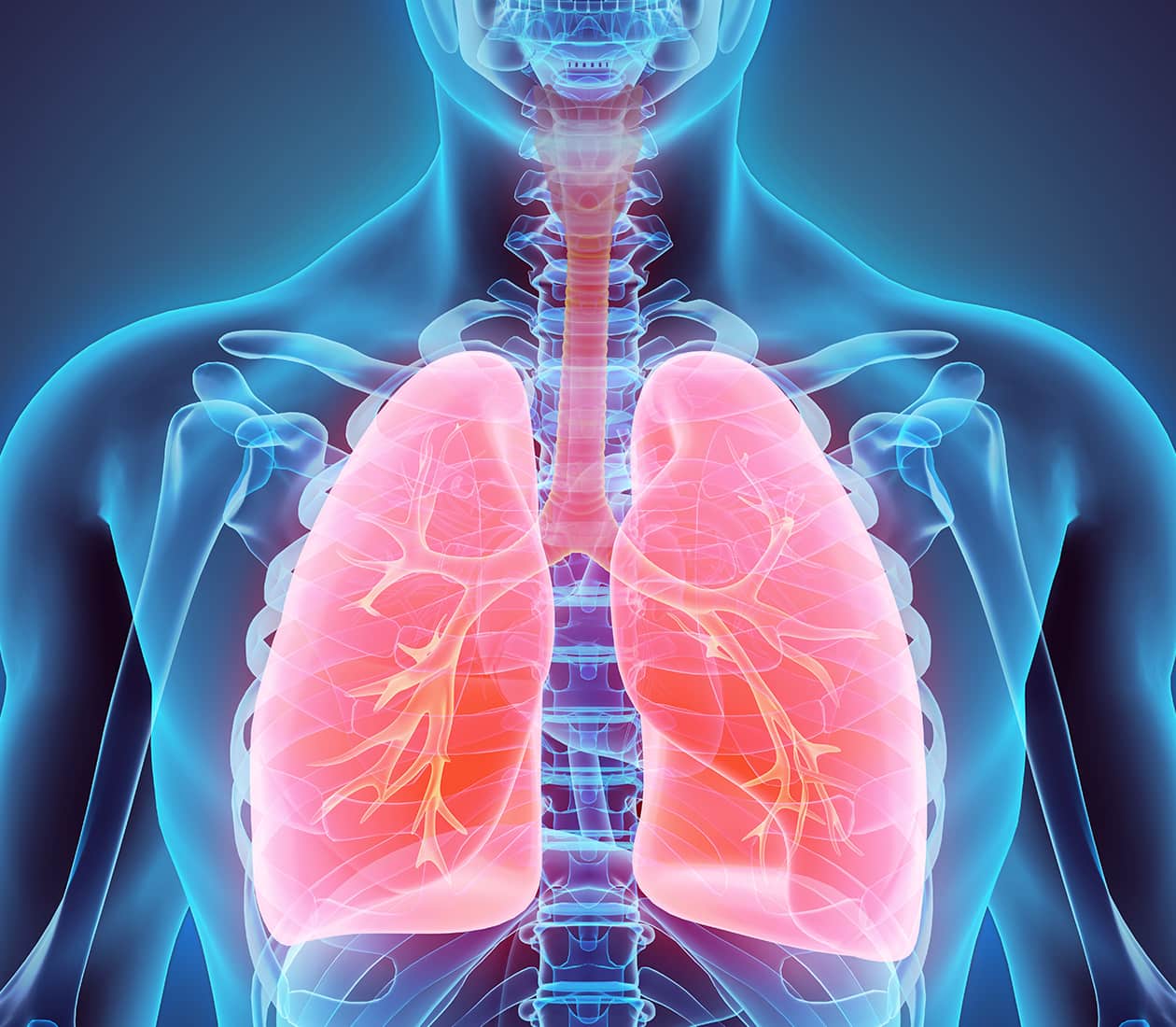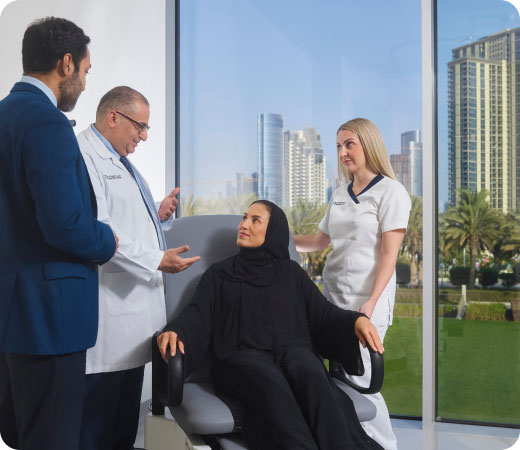
The Mediastinal Tumors Program at Cleveland Clinic Abu Dhabi provides specialized care and support for people diagnosed with mediastinal tumors, close to home.
The Mediastinal Tumors Program at Cleveland Clinic Abu Dhabi treats tumors of mediastinal origin. These are tumors that grow in the middle of the chest, in the area that separates the lungs. Tumors in this area include those from the thymus, nerves, lymphatic tissue such as lymph nodes, connective tissue or germ cells.
Every patient who comes for treatment of a mediastinal tumor receives Patients First care throughout diagnosis and treatment, which may include surgery, chemotherapy, and innovative, advanced approaches to treatment.

The Mediastinal Tumors Program at Cleveland Clinic Abu Dhabi provides specialized care and support for people diagnosed with mediastinal tumors, close to home.
We offer a comprehensive Thoracic Cancer Program supported by a multidisciplinary team of regarded thoracic experts. Taking a team approach to your treatment, care is coordinated among our specialists, and we offer a range of support services, ensuring you receive the highest quality care. This collaborative approach allows us to focus our entire team’s expertise and energy on providing the best strategies for diagnosing and treating our patients, supporting the best possible outcomes.
Our multidisciplinary tumor board meets once a week to discuss each patient. Specialists in treating lung cancers and tumors, esophageal cancer and other cancers of the chest sit together to talk through the best treatment options, including clinical trials, for each individual. Patients get the benefit of several expert opinions.

Mediastinal tumors are growths that form in the area of the chest that separates the lungs, called the mediastinum. The mediastinum is the part of the chest that lies between the sternum and the spinal column and between the lungs. The mediastinal area is where the heart, esophagus, aorta, trachea, thymus, nerves and lymph nodes sit.
Tumors that develop in the mediastinum may be malignant (cancerous) or benign (non-cancerous). Because some tumors tend to grow in specific areas of the mediastinum, they are divided into three sections: either front (anterior), middle or back (posterior).
Anterior (front) mediastinum
Middle mediastinum
Posterior (back) mediastinum

Many people with mediastinal tumors (around 40%) have no symptoms. The tumors are often found when an X-ray of the chest is performed for other medical reasons. Other patients with mediastinal tumors may experience one or more of the following symptoms because the tumor can put pressure on surrounding structures (heart, spinal cord or pericardium) in the chest. These symptoms may include:
In general, mediastinal tumors are rare and the cause is often unknown. These types of tumors are more common in people aged 30-50 years but can grow at any age and from any tissue within the chest cavity.
There are different types of tumors that can form in the mediastinum, and the cause of each is linked to where they form. They cannot be prevented, but you can increase the chances of successful treatment if they are discovered early. Mediastinal tumors that are not treated can cause serious problems, even if they are diagnosed as non-cancerous. Always report any of the symptoms of mediastinal tumors to your doctors if they persist for more than two weeks.

The following tests are used to diagnose mediastinal tumors:
Treatment will depend on the type of mediastinal tumor and where it is located.
Non-cancerous tumors may be observed and monitored over time if they are not causing any issues/symptoms.

The Mediastinal Tumors Program at Cleveland Clinic Abu Dhabi is comprised of a multidisciplinary team who offer specialized support in areas ranging from diagnostic imaging to post-operative care.
Caregivers involved in patient care for mediastinal tumors include:

Speak with our Contact Center for assistance
Request an Appointment 800 8 2223 International Patients